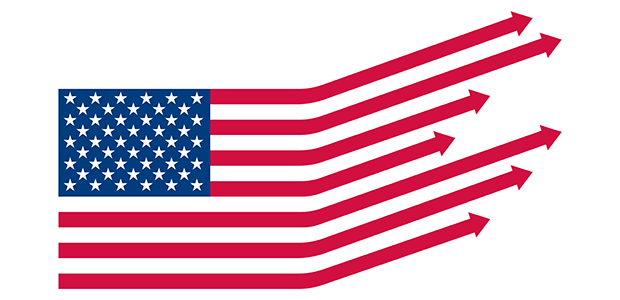
European startups delaying US expansion
Frontline Ventures' latest US Playbook, a comprehensive guide from the venture capital firm specialising in B2B software enterprises, disclosed that European startups have been delaying their US expansions since COVID. The average age of these companies has increased from four years before 2020 to five years afterwards.
To become a category leader, B2B tech firms must penetrate both the US and European markets. The US, with its enormous domestic market, accounts for 51% of global software expenditure. In 2023, $171bn of venture funding was allocated, nearly three times the amount directed to European companies.
One factor contributing to the deceleration in US expansion is the shift towards remote business practices post-COVID. Founders can now break into the US market without needing a physical office or can employ US workers remotely for extended periods before establishing a physical presence.
Despite the physical launch challenges in the US, 70% of the 73 European Unicorns in B2B SaaS have established operations there, underscoring the US market's significance in achieving a $1bn valuation.
The US Playbook features an analysis by Frontline Ventures on European startups that have expanded to the US, highlighting trends and sharing founders’ experiences to provide insights for aspiring entrepreneurs:
- Time zone as a key factor: contrary to the assumption that US expansion necessitates a move to Silicon Valley, analysis of over 200 B2B companies revealed that New York City is the most favoured destination for startups, with 45% choosing it. More broadly, 70% of the companies selected locations in the Eastern Time Zone, with Boston (12%) also being popular, while only 19% opted for the Bay Area
- Focus on sales: examination of 10 startups' hiring strategies during their US launch showed that seven of these companies hired at least five sales roles among their first 10 hires. Understanding which positions bring the most value at launch is crucial, given the rapid scaling of these teams, with only 40% growing to ten employees within 12 months of their first US hire. However, not all companies prioritised sales; some, like Algolia, Collibra, and Quantexa, took a product-driven approach, highlighting the need for product localisation
- Emphasis on junior hires: sixty percent of the companies' first three hires were junior or mid-level, with only 30% hiring an executive among their first five hires. This trend reflects the importance of being in time zones that facilitate collaboration with European counterparts and allow guidance from senior leaders
The US Playbook serves as a valuable resource for ambitious founders, offering data-driven insights and practical recommendations based on real-world experiences.
Will Prendergast, Partner at Frontline Ventures, commented: “At Frontline, we believe B2B tech companies must conquer both the US and European market in order to make it as a category leader. But expanding into a country where the competition is amplified exponentially can be intimidating. Early decisions about who and where you hire, for example, has a significant impact on new client acquisition and team integration. Drawing on the experiences and learnings of other founders is a great way to build a better roadmap when launching in the US.”

